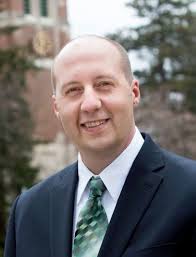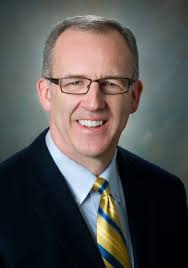Daily fantasy sports leagues have gotten awfully brazen since pairing with major sports leagues, inundating TV airwaves with advertising, and this has gaming regulators in some states looking askance at DFS. The first shot across the bow came from Nevada, where the Nevada Gaming Control Board announced it was undertaking a “legal analysis” of the wagering. The NGCB was responding to pressure from the likes of Boyd Gaming and William Hill Plc. The latter’s Joe Asher remarked, “I think daily fantasy sports betting should be legal, just like I think traditional sports betting should be legal. But let’s not pretend one is OK and the other is not.”
There’s no danger of DFS being outlawed but it could have to be regulated like any other gambling activity. NGCB Chairman A.G. Burnett told Reuters, “When you start offering daily fantasy contests, then you start to blur the line between skill and chance.
When chance begins to govern the outcome more than skill, you have a form of gaming, and that’s when the need for regulation kicks in.” Burnett could also have mentioned that the DFS crowd represents a demographic hotly coveted by casinos: high-income millennial males. Activist companies like MGM Resorts International could get a bite of the apple were DFS to be regulated like regular sports betting. Poker Stars parent Amaya Inc. isn’t waiting for state regulations but is developing its own version of DFS.
The activity is “illegal under current Michigan law” adds Michigan Gaming Control Board Executive Director Rick Kalm. That’s an inconvenience for Detroit‘s four major-league sports franchises, all of which have DFS affiliates. However, state  Sen. Curtis Hertel (D, right) is coming to the rescue with a bill that would legalize DFS as a “game of skill,” exempting it from state gambling oversight. A 2011 legal opinion by Marc Edelman states, “the gambling law element of ‘consideration’ is met, even absent an entry fee, so long as the contest participant expends substantial time or effort that benefits the contest’s host in some way … even if a host site offers a free fantasy sports game, the game may run afoul of state gambling law if the elements of ‘chance’ and ‘reward’ are both met.”
Sen. Curtis Hertel (D, right) is coming to the rescue with a bill that would legalize DFS as a “game of skill,” exempting it from state gambling oversight. A 2011 legal opinion by Marc Edelman states, “the gambling law element of ‘consideration’ is met, even absent an entry fee, so long as the contest participant expends substantial time or effort that benefits the contest’s host in some way … even if a host site offers a free fantasy sports game, the game may run afoul of state gambling law if the elements of ‘chance’ and ‘reward’ are both met.”
The scenario in Michigan parallels that in Kansas, where the Kansas Racing & Gaming Commission declared it an “illegal lottery.” Lawmakers’ came to DFS aid, however, and Gov. Sam Brownback (R) signed it into law, preserving DFS from regulation. As for the Wolverine State, Brian K. Tremblath explains, “Michigan also happens to be one of a handful of states where the threshold for legal versus illegal gambling hinges on the outcome/prizes, rather than the cost of entry.” It will take some adroit legislative footwork to get around that, since “outcome/prizes” is the entire selling point of DFS.
In the meantime, while sports betting is predominantly contained to Nevada, the envelope is being pushed by ESPN, which is  lavishing more time on the gambling angle of college sports. The network claims it is just responding to demand but SEC Commissioner Greg Sankey doesn’t care for the genie that has escaped the bottle. “There is an existing concern about the inexorable march toward gambling being more and more central to sport. It has clearly gotten more momentum based on messaging out of the NBA last year,” Sankey said, referring to Adam Silver‘s endorsement of legalized sports. Sorry, Mr. Sankey, there’s no turning back the clock.
lavishing more time on the gambling angle of college sports. The network claims it is just responding to demand but SEC Commissioner Greg Sankey doesn’t care for the genie that has escaped the bottle. “There is an existing concern about the inexorable march toward gambling being more and more central to sport. It has clearly gotten more momentum based on messaging out of the NBA last year,” Sankey said, referring to Adam Silver‘s endorsement of legalized sports. Sorry, Mr. Sankey, there’s no turning back the clock.


It is ridiculous and bizarre how many Fan Duel and Draft Kings commercials are on during the football games so it makes sense that some gambling companies in Nevada and elsewhere will get upset.